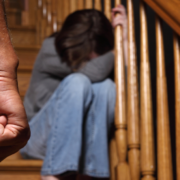Should I Move During My Divorce?
Not to sound like a lawyer, but that depends. If you feel unsafe or your spouse drives you crazy, you should move, but you should be aware of and prepare for the negative consequences. If you can still tolerate each other and be civil, you’re probably better off staying in the home, at least until you reach a divorce agreement.
Moving out makes the most sense when:
- You’re earning an income that will pay for both homes’ expenses
- You don’t have kids or, if you do, you aren’t interested in having primary custody
- You (and your kids) must leave an abusive situation
- You’re not interested in owning the house when marital assets are divided
Should you stay or should you go? You have to consider the issues:
- Would Moving Impact a Custody Dispute?
If you have kids, do you plan to move out with them, or will they stay with the other parent? Moving out of the home while your kids remain will likely impact your custody claim, so if that’s a priority, stay where you are.
Unless you’re involved in an abusive relationship, it’s usually in a child’s best interests to stay in the family home during a divorce because it should minimize the potential disruptions to children’s lives.
- How Would Moving Affect Your Finances in the Short and Long Term?
Moving means two households and possibly twice as many expenses. Leaving your marital home doesn’t mean you no longer need to worry about its bills. If you share the title and a mortgage to a house, you must keep up the payments. You’ll have your new expenses, plus your old ones. Can you swing that?
Your house may be the most valuable asset the two of you own. Though it’s no guarantee, when it’s time to decide who will get the house, the spouse living in or maintaining it can have a stronger claim than the one who moved out or who isn’t helping to maintain it.
If you want the house when marital property is divided, remaining in it may help protect your interests. Leaving is not a big deal if you don’t want the house and would rather have your share of it paid to you in cash or some other asset.
- Might Remaining at Home Push the Divorce Process Along?
Emotionally, moving out can be a mixed bag. In the short term, the two of you are physically away from a source of stress which should improve your peace of mind. This reduced stress takes some pressure off and makes finalizing the divorce less urgent. Therefore negotiations may drag out longer. If you share the same household, the two of you may be more motivated to get the divorce over and done with.
Don’t Make a Move Without Talking to Us
Moving out of your marital home may have far more consequences than you realize. You may see living on your own as a major goal that shouldn’t wait for a finalized divorce. Depending on your circumstances, you may be able to achieve that with minimal impact on your interests. It may also be a significant financial stretch that can impact your ability to get custody of your kids and your house as part of the division of assets.
Should you move during your divorce? Like all other issues, that depends on your goals, situation, and the law’s impact. If you’re thinking about getting divorced and how that’ll impact where you’ll live, contact us here at Karen Ann Ulmer, P.C., so we can answer your questions and discuss how we can help you.








